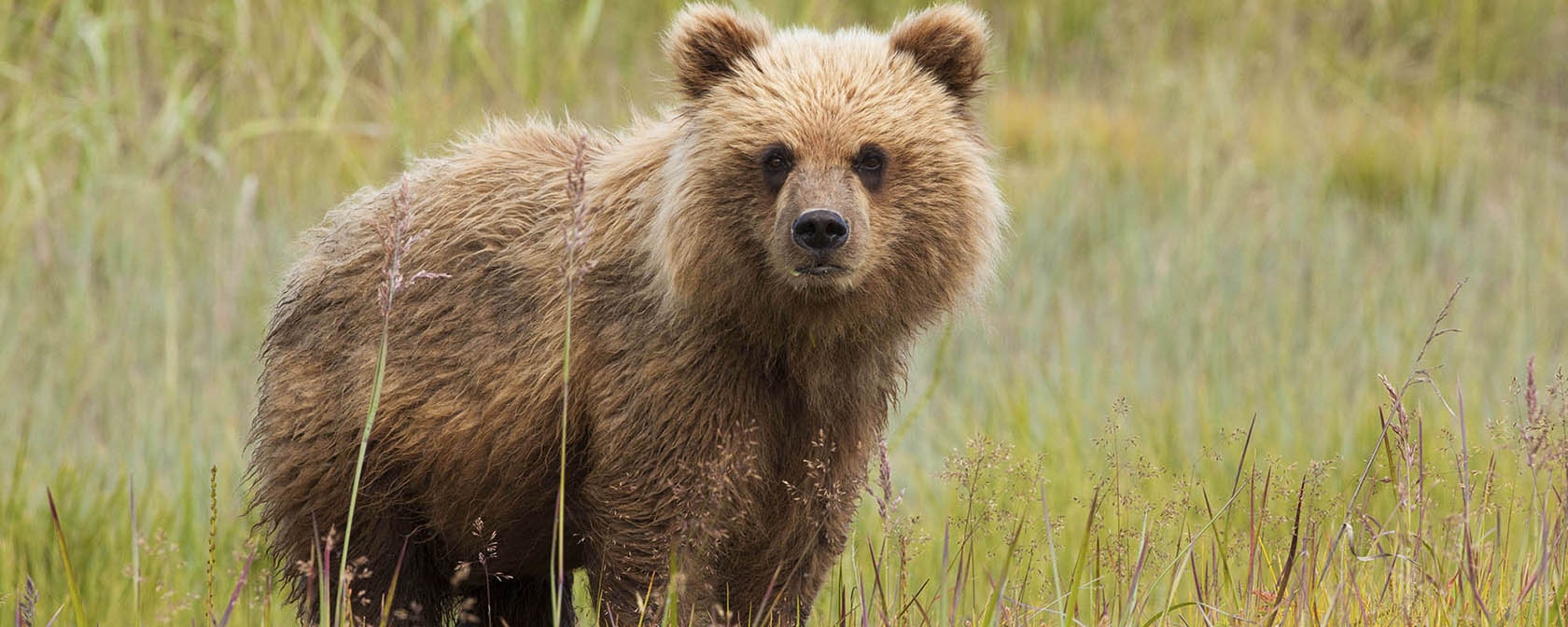By Sara Amundson and Kitty Block
The U.S. House today approved many key animal protection reforms, including measures designed to rein in horse soring, combat wildlife trafficking and help enforce animal cruelty laws, as part of Congress's annual appropriations process. Members also prohibited the use of federal funds for implementing cruel hunting practices on public lands in Alaska, and rejected an attempt to ensure the import of endangered elephant and lion trophies into the United States can continue.
The reforms are part of a package of appropriations bills, called a “minibus,” and the package considered today—covering the departments of Agriculture, Interior, State, Veterans Affairs and the Environmental Protection Agency—is the first of two minibus bills the House will take up this year as it goes about its job of funding the federal government. Other animal protection reforms included in this minibus include reducing slaughterhouse kill speeds, providing more shelter options for domestic violence survivors with pets, and protecting gray wolves.
In addition, members successfully added amendments to the package that would:
Combat wildlife trafficking: At $8 to 10 billion per year, the illegal wildlife trade ranks as one of the most lucrative criminal activities internationally, and it is also one of the most significant threats for imperiled wildlife, whose rare parts and products are used for food, traditional medicines, luxury goods and as symbols of social status. This amendment, offered by Rep. Sheila Jackson Lee, D-Texas, would reinforce the importance of the State Department’s work with international partners to counter the trafficking of endangered species.
Prevent cruel hunting practices on public lands in Alaska: This amendment would prevent federal funds from being used to implement a disastrous National Park Service rule finalized in June that would allow trophy hunting practices, including killing hibernating bears and wolf pups, on Alaska's national preserves. The measure was offered by Reps. Pramila Jayapal, D-Wash., Earl Blumenauer, D-Ore., and Brian Fitzpatrick, R-Pa.
Rein in horse soring: The package approved today would earmark $750,000 for the USDA’s Office of Inspector General to complete, by July 31, 2021, an audit of the agency’s enforcement of the Horse Protection Act, which regulates horse shows to detect and penalize the soring of Tennessee walking horses and related breeds, and the Slaughter Horse Transport Program, which is supposed to ensure that horses being shipped for slaughter to foreign processing plants are transported humanely. This amendment, building on committee report language included earlier at the behest of a bipartisan group of 207 Representatives, was offered by Reps. Steve Cohen, D-Tenn., Fitzpatrick, Vern Buchanan, R-Fla., Kurt Schrader, D-Ore., Steve Chabot, R-Ohio, Ron Estes, R-Kan., Tony Cárdenas, D-Calif., Pete King, R-N.Y., and Jan Schakowsky, D-Ill.
Enforce animal cruelty laws: One of the measures approved today would transfer $1 million for the USDA Office of Inspector General to enforce anti-animal cruelty statutes including federal animal fighting law. This amendment, also building on language the Appropriations Committee included at the request of 207 Representatives, was offered by Reps. Joe Neguse, D-Colo., Matt Gaetz, R-Fla., Madeleine Dean, D-Pa., Bill Posey, R-Fla., Cohen, Tim Burchett, R-Tenn., Buchanan, Fitzpatrick, Cárdenas, Estes, P. King, Ann McLane Kuster, D-N.H., and Ben McAdams, D-Utah.
Improve management of wild horses and burros: This measure would encourage the Bureau of Land Management to use $11 million of its budget to implement PZP, a humane, reversible fertility control vaccine to manage wild horses populations. For many years, the Humane Society of the United States and Humane Society Legislative Fund have advocated that BLM must revamp its management strategy to focus on proven, safe and humane fertility control vaccines to address on-the-range population growth in a humane manner. This amendment was offered by Reps. Cohen, Dina Titus, D-Nev., Raúl Grijalva, D-Ariz., Neguse, Fitzpatrick, David Schweikert, R-Ariz., David Price, D-N.C., P. King, Deb Haaland, D-N.M., Schakowsky, McAdams, and John Katko, R-N.Y.
Support equine-assisted therapy for veterans: This amendment would transfer $5 million to the Veterans Health Administration’s Medical Services program for use for equine-assisted therapy to support veterans’ mental health. This form of therapy has proven successful for many veterans by reducing PTSD-related anxiety, increasing confidence, and improving interpersonal skills and trust in others. Working with these large animals also hones veterans’ patience and perseverance and helps them regain physical strength. The amendment was offered by Rep. Andy Barr, R-Ky.
Members rejected a bad amendment offered by Rep. Jeff Duncan, R-S.C., that would have ensured that the U.S. Fish and Wildlife Service can continue issuing permits to import endangered elephant and lion trophies from Zimbabwe, Zambia and Tanzania. The House reiterated its 2019 declaration that American taxpayers should not subsidize the cruel hobbies of wealthy hunters who threaten the existence of our world’s most at-risk wildlife. Reps. Buchanan, Blumenauer, P. King and Jared Huffman, D-Calif., are leading efforts to secure a the ban on these trophy import permits by prohibiting the agency from using federal funds to authorize these trophy imports.
We are grateful to all members who worked to get these issues into the bills and to ensure they remained in the package that passed the full House. Kudos also to our HSLF staff for their role in bringing these matters before members of Congress and keeping them front and center as they move toward passage. This work on the appropriations process is some of the most important we do each year, and over time it's resulted in many terrific wins for animals.
We urge the Senate to next take up and pass these commonsense reforms without delay. And we'll be working on the other minibus bill, and to ensure it includes more victories for animals, in days to come.
Kitty Block is President and CEO of the Humane Society of the United States.




